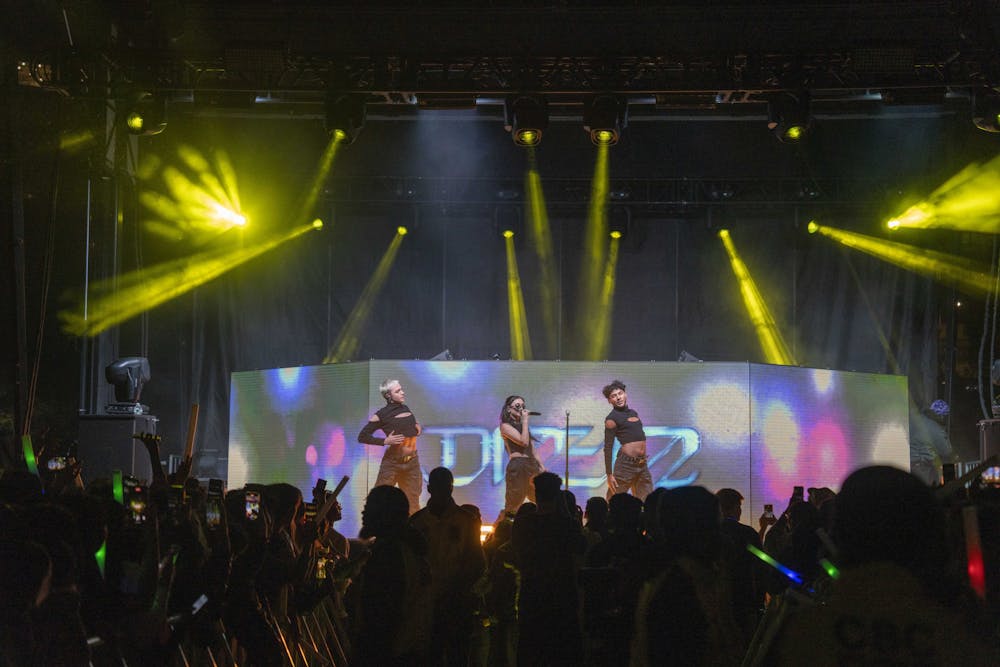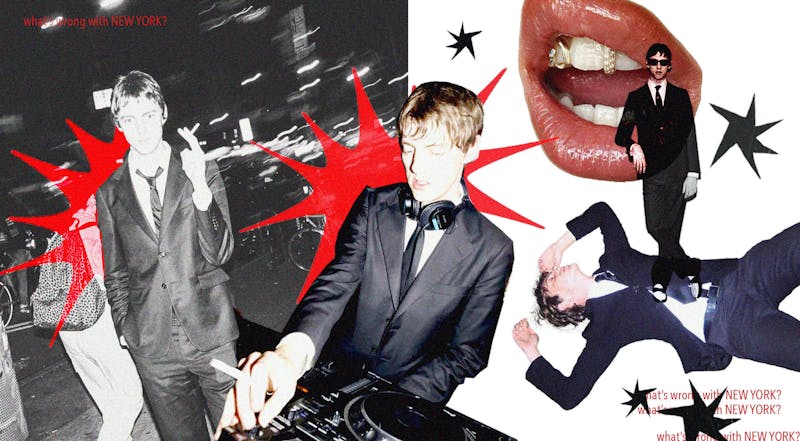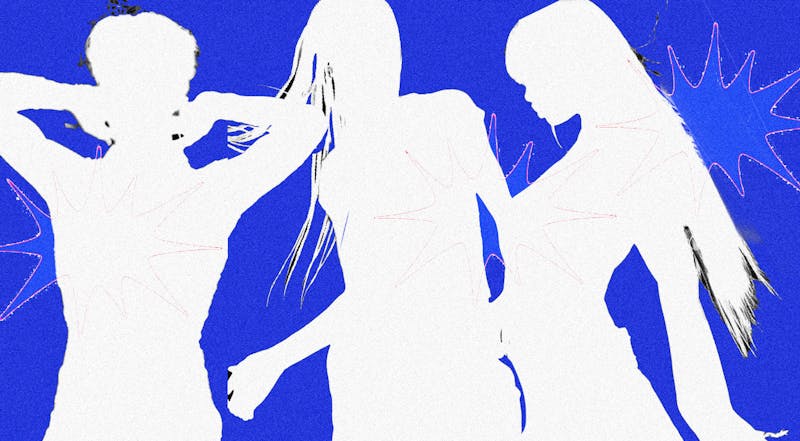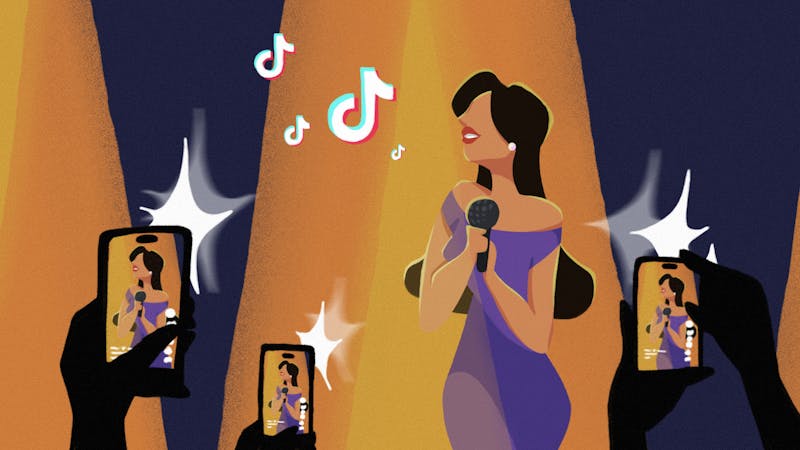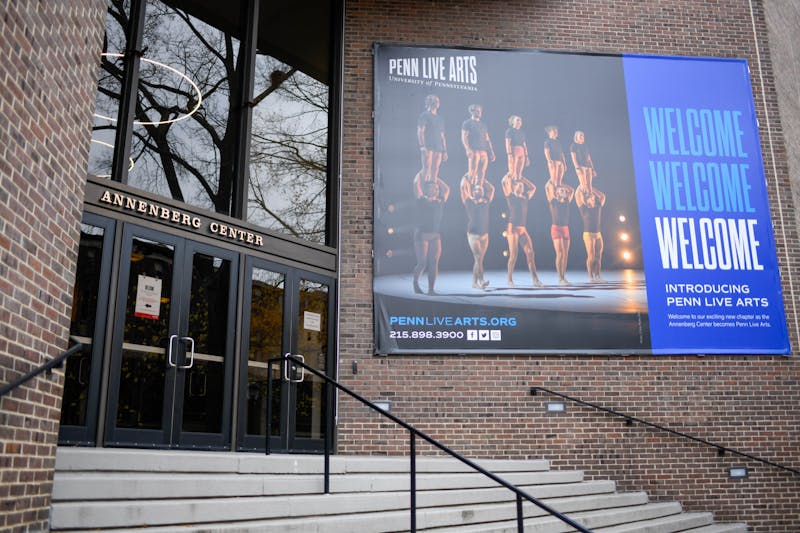On Sept. 11, crowds swarmed to the SummerStage in Central Park to watch beabadoobee perform her “This Is How Tomorrow Moves” tour. Fans entered the pit area expecting a night they would never remember, eagerly waiting to sing along to “Death Bed (coffee for your head)” and “the perfect pair.” Fans also bridled with excitement to hear tracks from her headlining album This Is How Tomorrow Moves, an indie rock/pop project featuring co–founder of Def Jam Records and Grammy–award winning producer Rick Rubin. As fans began to settle in and beabadoobee hit the stage, however, the atmosphere quickly became negative.
Fans quickly took to TikTok with complaints about poor concert etiquette: Concertgoers laughed during the moment of silence for 9/11, screamed in between songs, and became aggressive with others. Bea took to Instagram Live following these complaints and told fans to be aware of the people around them. She also admitted that she cried during one show because people were chanting “fein” in the middle of her performance. She ended the livestream explaining how she was frustrated about the number of TikToks she saw complaining about the conduct of other people.
This is not just a problem with her fans, either. Last year, I attended the Death Grips North American tour in Philadelphia. While the show itself was incredible, the most noteworthy thing to happen was a grotesque example of poor concert etiquette: Someone was in the pit at Franklin Music Hall and … peed all over the floor. With Bea’s tour fiasco and the man now known as the Philly Pisser, it can seem like most concerts nowadays are toxic environments. However, is there really an uptick in bad manners at shows, or has there just been an increase in surveillance about poor etiquette?
So, what is poor concert etiquette? There are many unspoken rules about being a polite concert attendee: Don’t rush the stage, don’t record videos during the concert, don’t stand in front of people who are sitting or are shorter than you, et cetera. In short, if it could potentially bother the performer or other concertgoers, don’t do it.
Fans have always been obnoxious at concerts, even in the 19th century. People who attended opera houses considered those who went to music halls noisy and crude. Fans would also throw objects onto the stage: Franz Liszt, a German pianist and composer, was the victim of a phenomenon known as “Lisztomania,” which involved audiences tossing flowers and other souvenirs at musicians. This marked the start of harmful behavior during performances.
As music evolved, so did the fans who went to these concerts; it should come as no shock that audiences became rowdier. At first, this was mostly contained to certain genres: The Punk scene created mosh pits as an outlet for angst and friendly aggression. One would think mosh pits would go against every piece of concert etiquette imaginable. However, as a group activity that encapsulates the ideology and energy of the punk (and later rap) scene with its own unspoken rules, mosh pits do follow concert etiquette.
The flip side to this, however, was the increasing depravity of actions across live shows of all genres. Fans became more intense at shows that weren’t punk, and items thrown on stage became more distracting and dangerous. The most infamous example of this was at an Ozzy Osbourne concert: On Jan. 20, 1982, a fan threw a live bat at him. Osbourne was known at the time for biting rubber animals on stage, so he picked up the bat and bit its head off, thinking that it was rubber. Osbourne went to the hospital afterwards for rabies shots and later made a public statement saying that he would refrain from such intense theatrics in future shows.
Today, with TikTok, YouTube, X (the platform formerly known as Twitter), and other social media, it becomes apparent that some issues are blown up by multiple people posting about the same incident. The Philly Pisser incident, for instance, was further blown up when music critic Anthony Fantano explained his experience slipping on the pee on his "The Needle Drop" YouTube channel. While the video is humorous, Fantano uses his platform to share his very negative experience of an otherwise fun show, and others in the comments contribute as well. With degenerate incidents such as these, social media can often frame these concerts as overly negative when in reality, the majority of the audience had a fun experience.
So are beabadoobee fans the most inconsiderate people ever? Do they show that concert etiquette is the worst it has ever been? No, the same conduct that happens at modern concerts has been happening since the 1840s; people didn’t become jerks overnight. The New York show demonstrates that this was not a solitary incident; spectators experienced similar levels of distasteful behavior at other performances on the tour. Many individuals filmed and posted complaints to TikTok, causing more tension and ultimately leading to beabadoobee apologizing on a livestream.
People and music are constantly evolving, and it is important to not lose sight of the main point of concerts: enjoying live music with like–minded people. One is going to experience poor concert etiquette anywhere they go. It’s annoying, but artists like beabadoobee calling out toxic behavior is a step toward better etiquette. We learn from the past, and this is how tomorrow moves.
